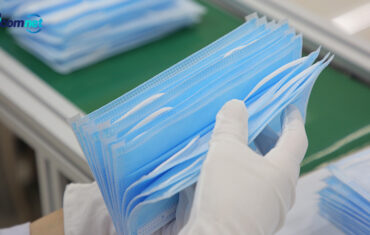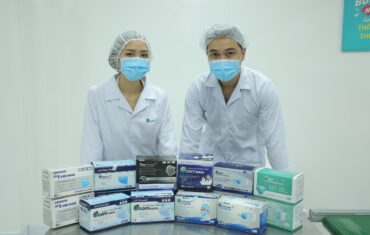Medical mask manufacturers provide face masks to protect everyone. It keeps you from spreading your germs and can stop other germs from getting into you. However, if used thoughtlessly, medical mask manufacturers notice that the masks can also cause unwanted side effects. Here’s what they are—and how medical mask manufacturers advice to prevent them.
1. They Can Mess With Your Sight
Wearing a face mask makes the exhaled air go into the eyes. This generates an uncomfortable feeling and an impulse to touch your eyes. Medical mask manufactures mention that if your hands are contaminated, you are infecting yourself.
The Rx: Resist the temptation to touch your face, and wash your hands with soap for 20 seconds after contact with substances like door handles, elevator buttons, packages or anything else where germs thrive.
2. They Can Be Uncomfortable
Finding the right fit starts with using the right cloth or other face covering.
The Rx: While you want your mask to fit snugly around your face to help prevent respiratory droplets from escaping or coming in, you don’t want it to be so tight that it hurts your face. Also, medical mask manufactures explain that if mask is too tight, it gives you less room to breathe well.
3. They Can Restrict Your Airflow
Medical mask manufacturers mention that face masks can make breathing more difficult.
The Rx: This may also worsen the clinical condition of infected people if the enhanced breathing pushes the viral load down into their lungs. If you feel you have COVID-19, you should quarantine yourself away from others and remove the mask. Medical mask manufactures advice you should contact a medical professional to discuss the next steps.
4. They Can Cause Glasses to Fog
When you exhale warm air without wearing face mask, it dissipates into the atmosphere. When you do it wearing a mask, it tends to shoot straight up into your bifocals, fogging them up.
The Rx: Wash your glasses in soapy water and allow them to air dry. The film should prevent fogging. An easy hack which medical mask manufacturers advice is that you place folded tissue between your mouth and the mask. The tissue will absorb the warm, moist air, preventing it from reaching your glasses. Also, make sure the top of your face mask is tight and the bottom looser, to help direct your exhaled breath away from your eyes
5. They Can Cause Skin Irritation
If you have dry skin, it’s best to put on moisturizer before wearing face mask. This can help prevent skin irritation from where face mask rubs your face.
The Rx: If you have sensitive skin, you may want to forgo the makeup under your mask altogether and to cleanse your face before and after wearing a mask. Medical mask manufactures mention that the foundation can also rub off on your mask, leading to decreased air filtration, making it harder to breathe.
6. So What’s the Best Kind of Face Mask
According to the CDC, Medical mask manufacturers should produce masks which:
- fit snugly but comfortably against the side of the face
- be secured with ties or ear loops
- include multiple layers of fabric
- allow for breathing without restriction






